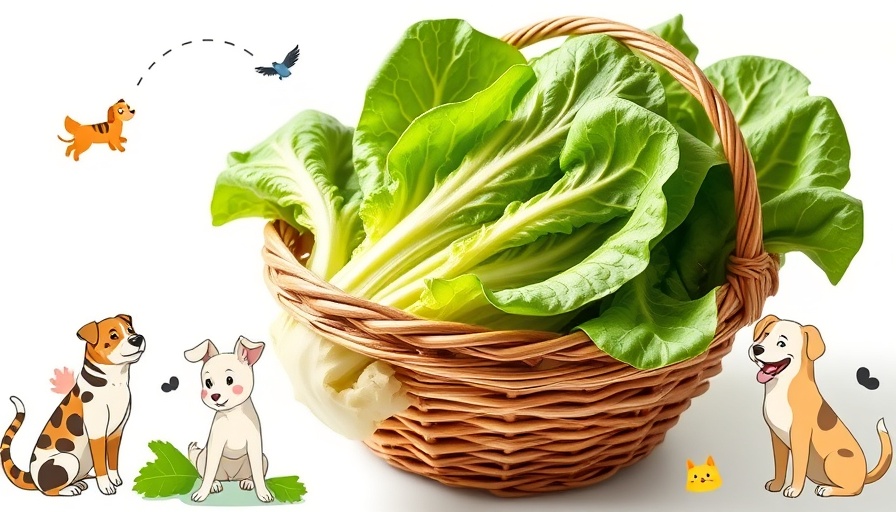
Understanding Your Pet's Digestive Distress
When we think of our beloved pets, we often envision playful moments and joyful companionship. But what happens when their charming antics lessen and their vibrance seems muted? Digestive distress is a silent alarm that pet parents often overlook, yet it can signal serious health issues lurking beneath the surface. As devoted guardians, recognizing the signs of digestive disorders in dogs and cats is crucial to ensuring their well-being.
IBS vs. IBD: Recognizing the Differences
It's common for pet owners to conflate Irritable Bowel Syndrome (IBS) and Inflammatory Bowel Disease (IBD), as both conditions present similar symptoms: fatigue, gas, vomiting, and diarrhea. However, their implications are markedly different. IBS is characterized by occasional inflammation in the digestive system while IBD represents a chronic condition where the inflammation becomes persistent and damaging to the intestinal lining.
Moreover, if the early signs of IBS go unaddressed, it can escalate to IBD, leading to further complications like nutrient malabsorption and severe gastrointestinal disturbances. Educating ourselves about these conditions empowers us to take proactive measures in our pets' health journey.
Causes of Digestive Distress in Pets
Understanding the root causes of digestive distress can help pet owners better manage their furry friends' health. Stress, dietary intolerances, and insufficient dietary fiber are just a few culprits that can trigger these issues. Notably, some breeds have a genetic predisposition to gastrointestinal problems, making breed awareness an essential aspect of responsible pet ownership.
Additionally, abnormal intestinal activity can indicate a greater underlying issue, making it vital to monitor your pet's habits closely. For instance, sudden changes in appetite or abnormal stool consistency warrant immediate consultation with a veterinarian.
Diagnosing Digestive Issues: A Vet's Perspective
Diagnosing IBS in pets can often feel daunting, as the process involves ruling out other conditions that exhibit similar symptoms. Veterinarians typically embark on a thorough examination that includes blood tests and stool analysis. While this may take time, it is essential for pinpointing the exact nature of the problem.
Moreover, the diagnostic procedure helps eliminate the fear associated with misdiagnosis, ensuring pets receive the precise care they need to thrive once again.
Treatment Paths for Pet Health
Once diagnosed, your vet will collaborate with you to formulate a comprehensive treatment plan tailored to your pet’s specific needs. This could involve dietary modifications—like incorporating high-fiber foods or probiotic supplements—to promote better gut health and reduce inflammation. In some cases, digestive enzymes may be prescribed to further assist with nutrient absorption.
Additionally, understanding their condition allows owners to create a more stress-free environment, which can contribute to better overall health for their pets.
Emotional Connections: The Human-Pet Bond
Monitoring our pets’ gut health isn’t just about physical symptoms; it’s also a reflection of our emotional connections with them. When pets are experiencing discomfort, they may exhibit changes in behavior, leading to stress for both the pet and the owner. Open communication with your veterinarian can reveal not just medical avenues but emotional support too, fostering an environment where pets feel loved and understood.
Taking Action for a Healthier Tomorrow
Recognizing the signs of gastrointestinal distress in dogs and cats is a vital aspect of responsible pet ownership. By committing to regular check-ups and staying alert to changes in behavior, pet parents can ensure their furry companions lead healthy lives full of tail wags and purrs.
If you notice any symptoms of digestive distress in your pets, it’s time to consult a veterinarian. Addressing these issues early can prevent them from developing into more serious conditions down the line, ensuring your beloved pets enjoy their lives to the fullest.
 Add Row
Add Row  Add
Add 




Write A Comment